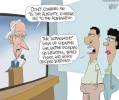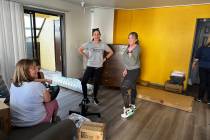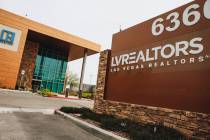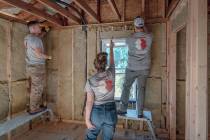Reverse mortgage pros and cons for homeowners
Reverse mortgages may seem like a product of last resort, but for certain homeowners they can be a viable way to access the equity they have built up in their home.
Made familiar by famous spokesmen Henry Winkler and Robert Wagner, a reverse mortgage is a type of home loan that lets you convert a portion of the equity in your home into cash. Your equity can be paid out monthly for a fixed period of time until you die, or as a lump sum, or you can access it on an as-needed basis via a line of credit.
Reverse mortgage
A type of home loan that lets you convert a portion of the equity in your home into cash. If you die or the home isn’t the primary residence for more than 12 months, the loan comes due, which means either you or the estate has the option to repay the loan or put the home up for sale to settle it.
In the past, this type of mortgage product has come under attack from watchdog groups, partly over the fees and insurance costs associated with reverse mortgages, but also because people who weren’t careful with their spending could quickly run out of cash and lose their home.
New regulations were put in place in September 2013 to protect consumers, but it’s still up to them to know exactly what they are getting into when they take out a reverse mortgage, says Steven Sass, program director at the Center for Retirement Research at Boston College.
“There is a place for reverse mortgages under certain circumstances,” says Bruce McClary, a spokesman for Washington, D.C.-based nonprofit financial counseling service National Foundation for Credit Counseling. “Not all offers are the same. Seniors need to look at the details and ask a lot of questions.”
Know the costs before taking one out
Experts say there are some key attributes of reverse mortgages you need to understand before signing on the dotted line. For starters, expect to pay insurance during the life of the loan. That insurance protects you in the event that your house is worth less than the loan value when it comes due.
With a Federal Housing Administration home equity conversion mortgage, or HECM, which includes the majority of reverse mortgages, the initial mortgage insurance premium will be 0.5 percent or 2.5 percent, depending on your disbursement plus an annual charge that’s equal to 1.25 percent of the outstanding mortgage balance, according to the U.S. Department of Housing and Urban Development. You also have to pay an interest rate on the loan, closing costs to take out the reverse mortgage and be able to cover the expenses to maintain the house. That includes upkeep, property taxes and homeowners insurance.
The right age, amount of equity gets you approved
When it comes to who is eligible for a reverse mortgage, age is the first factor that matters. Homeowners must be 62 or older to take advantage of a reverse mortgage, and they have to occupy the property as their primary residence.
Should you consider a reverse mortgage?
Yes
A reverse mortgage makes sense if you:
• Don’t plan to move.
• Can afford the cost of maintaining your home.
• Have enough equity.
No
Skip the reverse mortgage if you:
• Can’t maintain the costs (property taxes, homeowners insurance, etc.) associated with the home.
• Want to leave your home to children or grandchildren.
There also has to be enough equity in the home to tap. To qualify for a reverse mortgage you should have an equity position of around 40 percent, according to Gregg Smith, president and chief operating officer of One Reverse Mortgage, the San Diego-based reverse mortgage unit of Detroit-based Quicken Loans.
There isn’t a credit score requirement, but the FHA does require a review of your credit and income to ensure you can afford to maintain the property. If there’s an existing mortgage, you also must have enough equity to pay it off, says Peter Bell, president and CEO of the National Reverse Mortgage Lenders Association, the Washington, D.C., trade association.
Motivation is another thing to consider. There are many reasons people would tap the equity in their home through a reverse mortgage, but if it’s for daily survival, there may be better options.
According to Sass of the Center for Retirement Research, a reverse mortgage makes sense for people who don’t plan to move, can afford the cost of maintaining their home and want to access the equity in their home to supplement their income or have money available for a rainy day.
Because you ultimately give up your home when the loan comes due, Sass says it’s not the right choice for someone who wants to leave their home to children or grandchildren.
“You can’t have your cake and eat it, too,” Sass says. “If you leave it, you can’t tap it.”
A reverse mortgage wouldn’t be the best option if you can’t maintain the costs associated with the home, even without a monthly mortgage payment. If that’s the case, then downsizing may give you some relief.
“There are a lot of motivations leading into it,” say Bell of National Reverse Mortgage Lenders Association. “In some cases, people may have an immediate need to pay off debt, or they may have had some unexpected expenses like a home repair or health care situation.”
Bell says some people even use a reverse mortgage to eliminate their existing mortgage and improve their monthly cash flow.


















